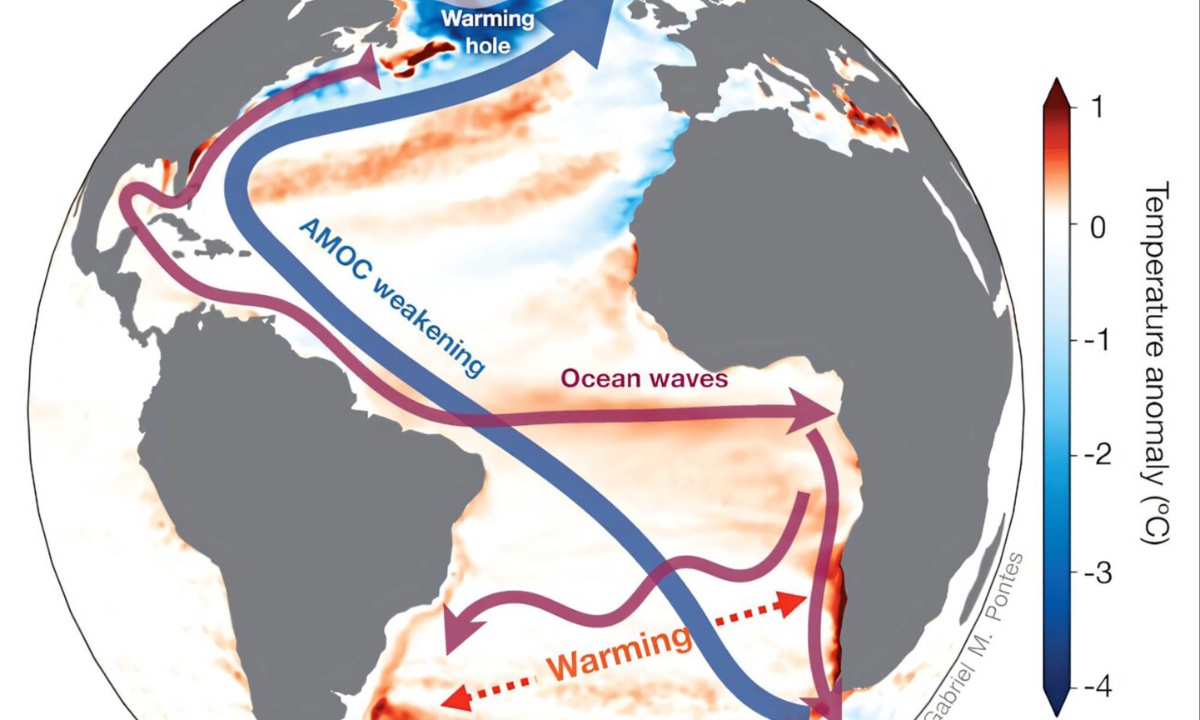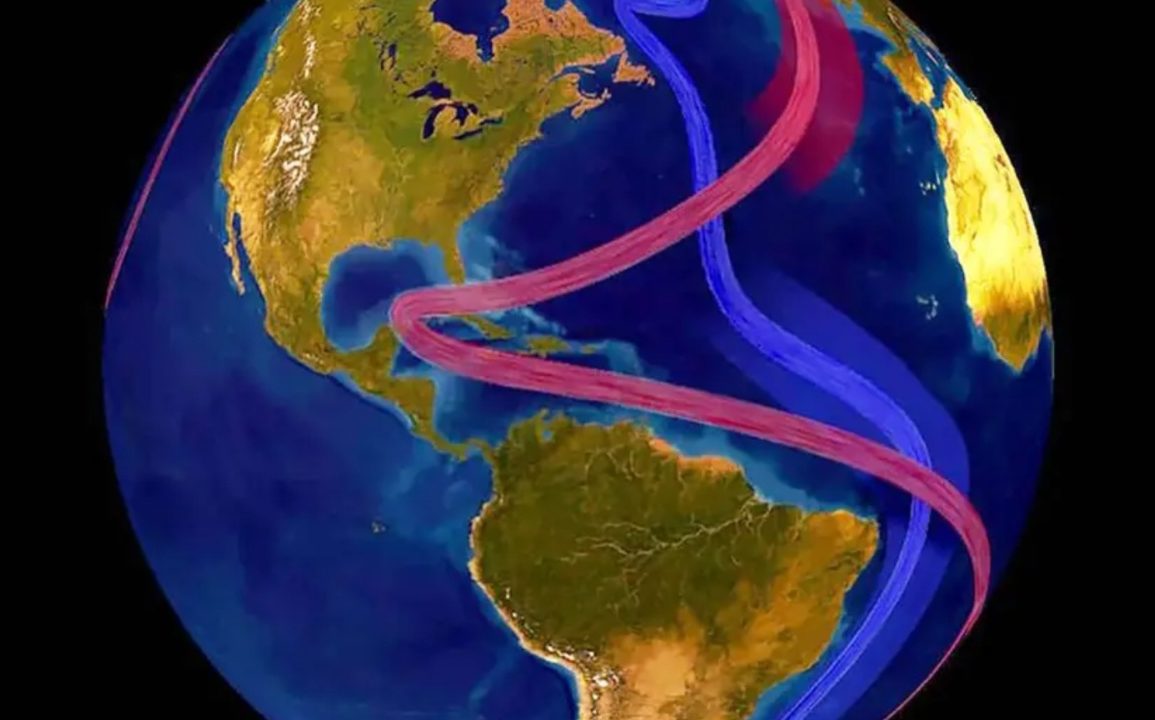Ocean currents, particularly the “great global ocean conveyor belt,” play a critical role in regulating Earth’s climate by distributing heat across the planet. The Atlantic Meridional Overturning Circulation (AMOC), a key component of this system, moves warm water northward in the Atlantic, cooling and sinking it in the process to create a continuous cycle.
This circulation is essential for moderating weather patterns and maintaining stable climates, such as the mild winters experienced in Western Europe. However, recent studies reveal that the AMOC is slowing down significantly, marking its weakest point in over a millennium, primarily due to global warming.
The weakening of the AMOC is driven by an influx of meltwater from the Greenland ice sheet and Canadian glaciers. Since meltwater is lighter than salty seawater, it disrupts the sinking process that powers the AMOC. This breakdown impairs the flow of deep, cold waters southward and weakens the Gulf Stream, which is responsible for maintaining moderate climates in Europe.
Scientists warn that this weakening could result in significant changes, including harsher winters in Europe, shifts in tropical monsoons, and faster warming in the Southern Hemisphere, all of which could have profound impacts on ecosystems and human livelihoods.
Global warming has already caused Earth’s temperatures to rise by 1.5°C since the industrial revolution, with the Arctic warming almost four times faster. The rapid melting of Arctic ice has added massive amounts of fresh water to the ocean, which further hampers the AMOC.
Research underscores the scale of this problem, pointing out that Greenland alone has lost trillions of tons of ice since 2002. The impact of this meltwater is profound, altering ocean circulation patterns and creating localized cooling in some regions, while heating others, such as the South Atlantic.

The ripple effects of a weakened AMOC extend globally, connecting oceans in ways not fully understood until now. A slowdown in the North Atlantic’s heat transfer leads to cooling in northern regions and a buildup of heat and salt in the South Atlantic.
The study highlights how interconnected these systems are, with changes in the North Atlantic influencing the South Atlantic within decades. Projections indicate that the AMOC could weaken by 30% as early as 2040, far sooner than earlier estimates, due to accelerating ice melt and climate disruptions.
Urgent action is required to mitigate the effects of the AMOC slowdown. If unchecked, Europe could face colder winters, the northern tropics might become drier, and parts of the southern U.S. could see wetter, warmer summers.
Researchers emphasize the necessity of reducing greenhouse gas emissions to slow down ice melt and preserve climate stability. The interconnected nature of Earth’s systems reminds us of the urgency to address climate change comprehensively, as time is running out to prevent further disruption of the global climate system.

